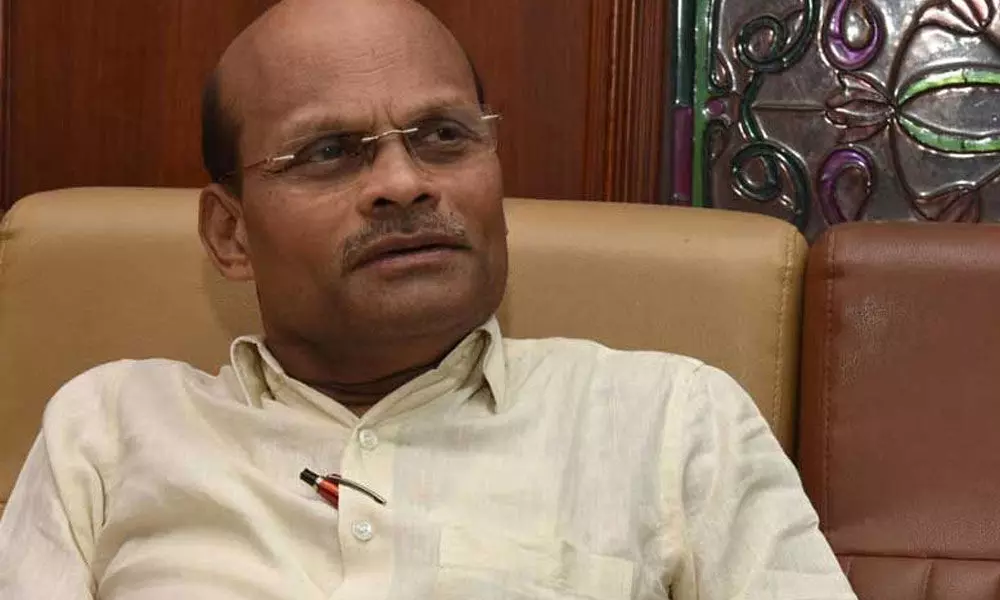Live
- Tips to avoid unnecessary mistakes while studying abroad
- Holi Festival: Liquor Outlets to Remain Closed for Holi in Hyderabad
- iQoo launches Neo 10R model
- Hyderabad: Woman Alleges Caste-Based Harassment by Roommates in Shaikpet
- Markets end on flat note
- Nifty Metal index falls after US tariffs
- AP minister clarifies on TIDCO houses, says all the issues will be addressed
- Uppal Stadium Preps for IPL with Rs 5 Crore Renovation
- Sebi speeds up rights issue process
- Ladhani Group to invest Rs 11K cr over 5 yrs
National Education Policy 2020 will empower students: expert


Dr M K Sridhar
- Mother tongue makes learning, child strong, observes the National Education Policy Committee member Dr Sridhar
- The autonomy allows colleges to prescribe syllabus based on the industrial requirements, arts, or crafts in their vicinity or district
Hyderabad: National Education Policy-2020 (NEP-2020), Committee member Dr M K Sridhar has said that it is for the first time that the Education Policy is going to empower the students.
Addressing a virtual meeting participated by several educationists, vice-chancellors, students on Sunday, he said the policy proposes a four-step education system in the form of preparatory classes, foundation state, preparatory state, middle state and secondary stage.
Dr Sridhar said unlike the earlier policies, the different stages have been aligned to the age of the students. Based on the same, the philosophy, curriculum and pedagogy are prescribed.
Because, "at each age brackets of study, students need a different way of handing," he added. It was against this backdrop, thee multiple classifications of academic, extracurricular and co-curricular and non-academic will go away, he said.
He said students after Class X have to leave general education if they want to pursue vocational education. The new policy helps them to benefit from both the worlds. Taking care of backward and neglecting areas, the policy proposes to teaching in the mother tongue. In turn, providing a wide scope to grow from sleeping on the lap of your mother and to learn even international languages.
Unlike the current system, now the colleges will have autonomy. In turn, the autonomy allows them to prescribe syllabus based on the industrial requirements, arts, or crafts in their vicinity or district. "Sometimes, the needs of industry change.
And, the students need not wait till university takes it into consideration and come up with a new syllabus," he added.
That apart, replacing the focused higher education, the students can take a different combination of courses.
Also, the multiple entries and exit points will provide the students officially what they have completed then wait till they have completed their course to get a degree award.
This would benefit about 3.3 crore students studying in higher education, he said.
Only, those who wanted to continue in the education, then the student can continue in their fourth-year undergraduate with research, he said.
That apart, the entire architecture includes online courses, MOOCs which would further benefit to the students.
Also, in the proposed system there will be less outside interference in the running of colleges and universities.
But, at the same time there will be an apex regulator to make them accountable under an independent board, he said.
Also, regulations, funding, accreditation and standardisation wings will be formed to take care of the functioning of the architecture, he clarified.

© 2025 Hyderabad Media House Limited/The Hans India. All rights reserved. Powered by hocalwire.com






